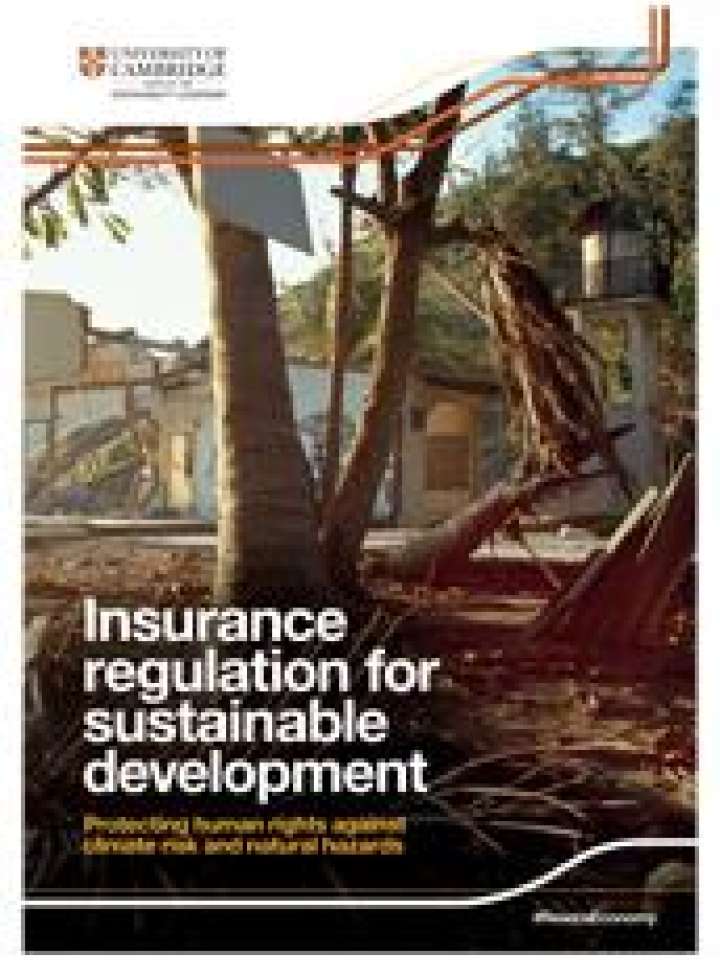Insurance regulation for sustainable development: Protecting human rights against climate risks and natural hazards
This report analyses the role of insurance regulation in protecting the basic human rights of life, livelihood and shelter against natural hazards and climate risk. Effective insurance regulation facilitates access to insurance (both traditional and alternative) as a means to increase communities’ resilience, fulfil related human rights duties of state and non-state actors and support the UN Sustainable Development Goals.
The input of insurance regulation to increasing resilience and reducing vulnerability of populations to these risks has been analysed by various official sources. This report takes those links a step further into the realm of human rights commitments already in place. It introduces the fundamental role of insurance regulation to protect life, livelihood and shelter by contributing to the fulfilment of existing human rights duties of both state and non-state actors.
Effective insurance regulation supports human rights by enabling financial inclusion, incentivising risk reduction behaviours and facilitating economic recovery after a disaster. Disruptive insurance regulation, or no regulation at all, deprives the poorest people in our world from protecting their own lives and assets. This report does not imply that regulation is a panacea, since access to insurance is determined by a combination of factors. It does, however, demonstrate that regulation is an essential part of increasing access to insurance around the world (public, private and mutual), in order to protect human dignity and advance the Sustainable Development Goals.
Explore further
